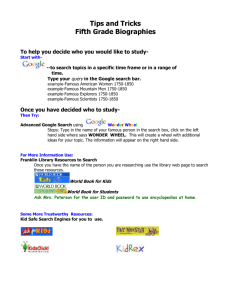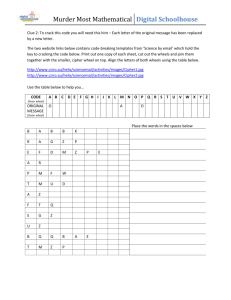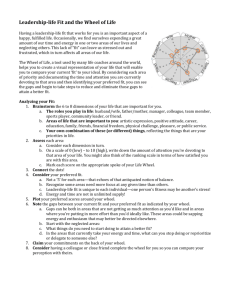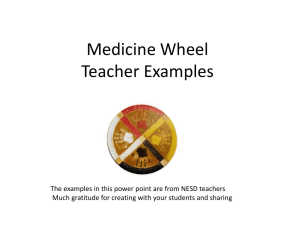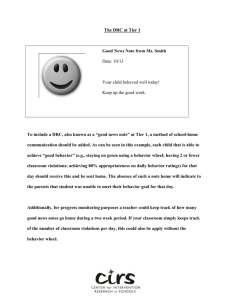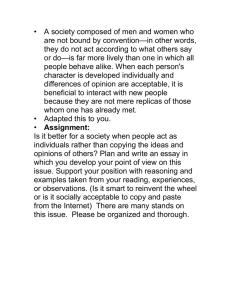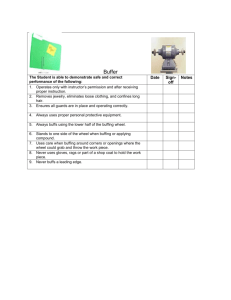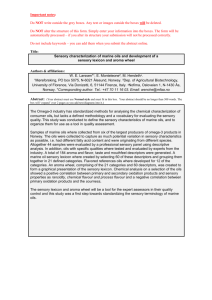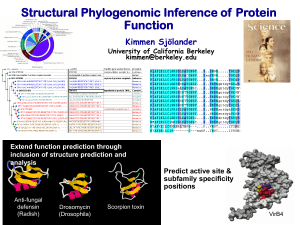Meeting of the IHC Sensory working group
advertisement
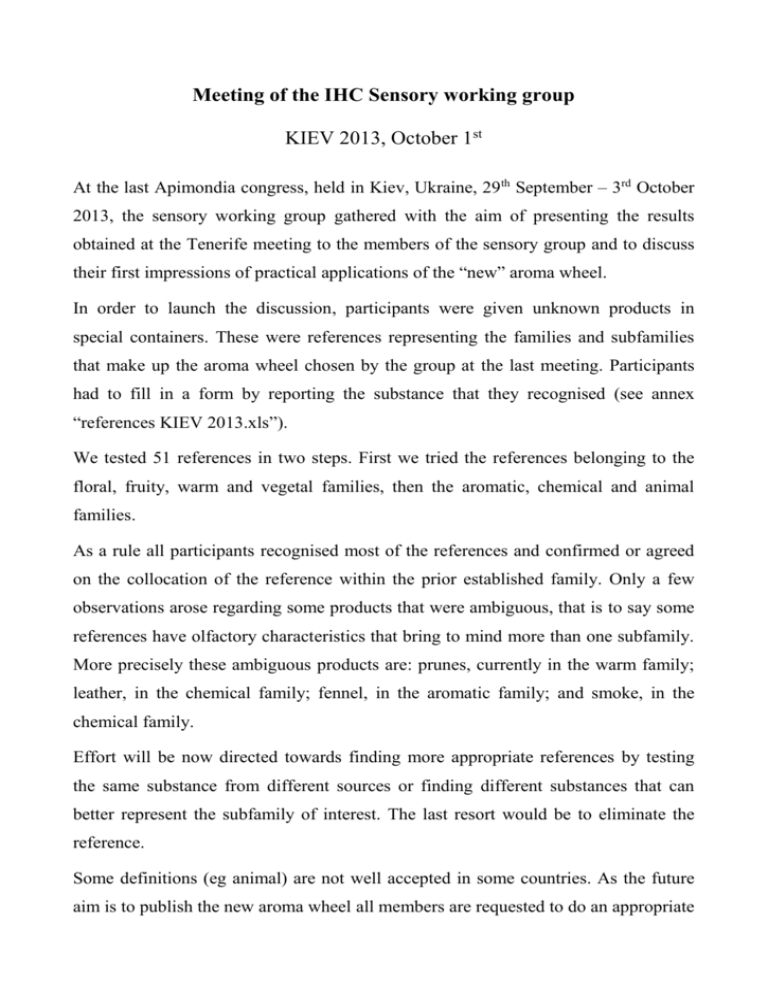
Meeting of the IHC Sensory working group KIEV 2013, October 1st At the last Apimondia congress, held in Kiev, Ukraine, 29 th September – 3rd October 2013, the sensory working group gathered with the aim of presenting the results obtained at the Tenerife meeting to the members of the sensory group and to discuss their first impressions of practical applications of the “new” aroma wheel. In order to launch the discussion, participants were given unknown products in special containers. These were references representing the families and subfamilies that make up the aroma wheel chosen by the group at the last meeting. Participants had to fill in a form by reporting the substance that they recognised (see annex “references KIEV 2013.xls”). We tested 51 references in two steps. First we tried the references belonging to the floral, fruity, warm and vegetal families, then the aromatic, chemical and animal families. As a rule all participants recognised most of the references and confirmed or agreed on the collocation of the reference within the prior established family. Only a few observations arose regarding some products that were ambiguous, that is to say some references have olfactory characteristics that bring to mind more than one subfamily. More precisely these ambiguous products are: prunes, currently in the warm family; leather, in the chemical family; fennel, in the aromatic family; and smoke, in the chemical family. Effort will be now directed towards finding more appropriate references by testing the same substance from different sources or finding different substances that can better represent the subfamily of interest. The last resort would be to eliminate the reference. Some definitions (eg animal) are not well accepted in some countries. As the future aim is to publish the new aroma wheel all members are requested to do an appropriate translation of the wheel into their own language (see annex “wheel 2013.xls”). The words used can be modified but the final meaning/idea of the family must remain the same. The translator can refer to the subfamily or references in order to determine the most appropriate definition for the family.
